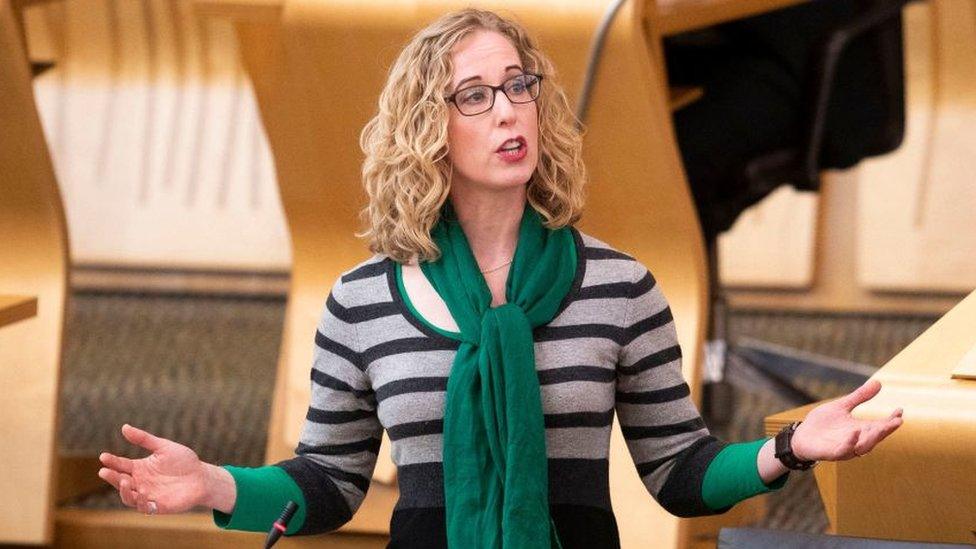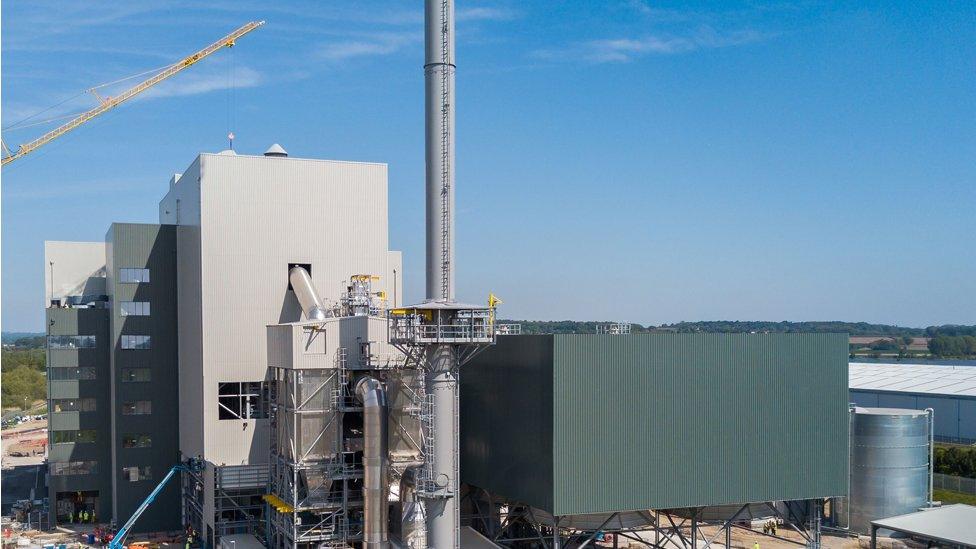Moratorium on waste-to-energy incinerators
- Published

Lorna Slater said the ban was a sensible measure
The Scottish government has announced what is effectively a ban on the building of new waste incinerators.
It means councils will be told not to grant planning permission to further incineration sites.
Six sites currently operate in Scotland. Plans for 11 more have already been approved, and their construction can go ahead.
It follows a rapid growth in applications because of a ban coming in 2025 on sending rubbish to landfill.
The Scottish government's circular economy minister said the move was part of ensuring future waste infrastructure aligned with climate targets.
Lorna Slater told MSPs that reducing waste and recycling were key to tackling the twin crises of climate change and biodiversity.
She said the moratorium was an action taken to encourage a circular economy, in which materials were kept in use as long as possible and precious natural resources were not wasted.
'Capacity gap'
The minister added: "We need to make sure we manage unavoidable and unrecyclable waste in the short term.
"By putting in place sensible measures to limit and gradually reduce Scotland's incineration capacity, we can make sure we can manage our waste today, while ensuring our future waste infrastructure aligns with our climate targets."
The ban will prohibit new sites on the same basis as that of new nuclear power and fracking sites, by telling local authorities not to grant planning permission.
If a council were to approve a new site, the decision could be called in by Scottish government ministers and overturned.
The moratorium comes in response to a report which recommended that the Scottish government should seek to rapidly reduce the amount of recyclable materials going to landfill or incineration.
It predicts a "capacity gap" by the time the landfill ban comes into force but says that gap could be closed by achieving Scotland's waste and recycling targets.
However, some opponents have raised concerns about how achievable those targets are based on the experience of other countries.


This decision still leaves ministers with a predicament over what to do with our waste in the middle of the decade.
A forthcoming ban on sending it to landfill is at the heart of this big spike in applications to build incinerators.
By 2025, when that landfill ban comes in, we're predicted to have more "black bag" rubbish than we know what to do with.
But by 2027, when all the consented incinerators are operational, there won't be enough to feed these hungry facilities. So what to do?
Rapidly increasing our recycling rates would help, but over the last few years we've not been doing so well in feeding our blue bins.
It could mean exporting some of our waste to be incinerated outwith Scotland for those two years - something we do at the moment.
But with Greens in government, "offshoring" our waste is not a good look.

The report, called Stop, Sort, Burn, Bury?, external, also recommended that a cap be introduced on the amount of residual "black bag" waste being incinerated, and that cap should be reduced over time.
It also urges local authorities to address the issue of "locked-in" waste - where councils commit to supplying incinerators with waste, rather than taking steps to reduce the amount generated - as part of their contracts with incinerator operators.
Existing facilities should pursue combined heat and power plants on site - creating district heating networks - to maximise the amount of energy being generated, it adds.
The government said it had accepted all of the report's recommendations.
The Environmental Services Association, which represents waste-to-energy operators, said that energy-from-waste continued to perform a vital role as a back-stop for waste that cannot be recycled in Scotland for now.
Policy adviser Stephen Freeland added: "It will therefore continue to play a vital role in Scotland's waste management infrastructure for decades to come with plants both already in operation, or which have planning consent."
- Published10 May 2022
